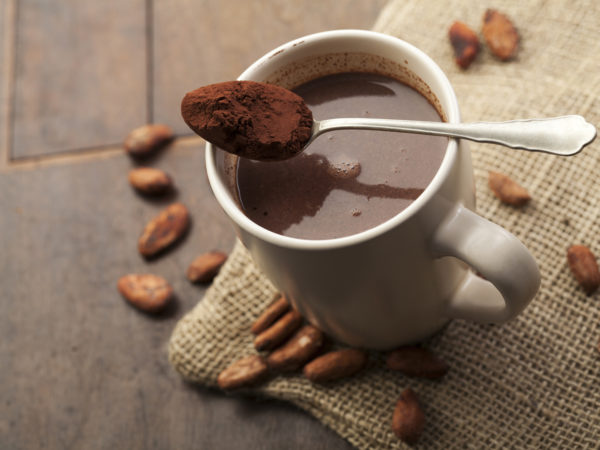Drink Cocoa Daily?
I recently heard about a study showing that drinking cocoa can prevent heart attacks, cancer, diabetes and other diseases. I know that chocolate has some health benefits. What about this cocoa business?
Andrew Weil, M.D. | May 9, 2007

You undoubtedly heard about the work of Harvard professor Norman Hollenberg, M.D., Ph.D., whose studies show that the Kuna people of Panama’s San Blas islands exhibit an extremely low risk of stroke, heart failure, cancer, and diabetes. In fact, the Kuna’s risk of these diseases is only 10 percent of that of most people. High blood pressure is also extremely rare among traditional Kunas, and dementia is virtually nonexistent.
Dr. Hollenberg first started studying the Kunas in an effort to identify genes that he thought must be responsible for the fact that they didn’t seem susceptible to high blood pressure. He soon concluded that protective genes weren’t the explanation because among the Kuna who migrated to Panama City, blood pressure rose with age, and hypertension was common. Among Kuna who still live on the islands diets are low in protein, very low in fat, rich in fruit and, interestingly, very high in salt. However these traditional people drink at least five cups of cocoa a day, making it from gently processed home grown cocoa beans. This cocoa is very rich in the same heart-protective flavonoids found in red wine, tea, and onions. One of the actions of these flavonoids is to help the body make more nitric oxide, a substance that relaxes smooth muscle in blood vessels allowing better blood flow.
In his research Dr. Hollenberg identified epicatechin, one of the cocoa flavonoids, as the active ingredient responsible for the Kuna’s good health. In fact, he has been quoted as saying that epicatechin is so important that it should be considered a vitamin. His work has been partially funded by Mars Inc., the candy manufacturer.
Please don’t think you can start sipping grocery store cocoa to prevent high blood pressure, heart disease and cancer. The commercial cocoas available today contain few, if any, flavonoids, which are routinely removed because of their bitter taste. The Kunas favorite drink probably would turn off consumers who are accustomed to the sweet, rich taste of commercial cocoa. If the health benefits of epicatechin are confirmed to be as impressive as they seem, it’s more likely that it will become available in supplement form rather than as a bitter cocoa drink. And if a supplement does become available, it won’t cancel out the risks posed by smoking, high cholesterol, a sedentary lifestyle and a high calorie diet full of saturated and trans fats. Cocoa seems to work well for the Kuna because in other respects their lifestyle is very healthy.
Andrew Weil, M.D.









